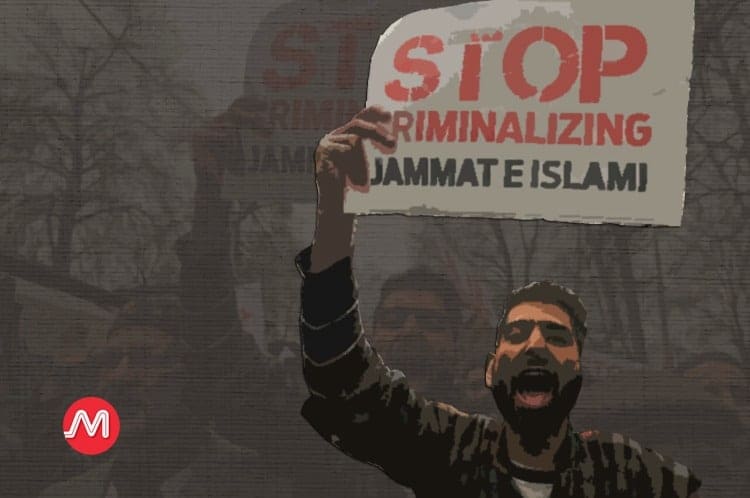
The raids by National Investigation Agency (NIA) are meaningless and an open attempt to harass, intimidate and restrict the sympathizers of banned Jamaat-e-Islami Jammu and Kashmir from carrying any activity on their personal and individual capacities for the ultimate good of the society at large, former heads of the banned organisation said in a joint press statement on Tuesday.
The seven-page press note by the former hierarchy of Jamaat, Ghulam Mohammad Bhat, Sheikh Ghulam Hasan, Mohammad Abdullah Wani and advocate Zahid Ali Lone, ex spokesperson Jamaat, is a reaction to mass raids on the banned Jamaat functionaries and cadres conducted by NIA on Sunday.
Bhat was a four-time head of Jamaat (i) 1985-1988, ii) 1997-2000, iii) 2000- 2003 and iv) 2015-2018) while Hasan was the two-time chief ( i) 2006-2009, and ii) 2009-2012 ) and Wani was Jamaat Ameer for the term 2012-2015.
The former leaders also urged the NIA to release the seized goods, phones, and other electronic gadgets to their owners so that their users are not put to any mental trouble or physical loss.
The National Investigation Agency Sunday raided 61 locations allegedly linked to the banned Jamaat-e-Islami Jammu and Kashmir as a part of its probe into a terror funding case.
The searches were carried out in Kashmir’s Srinagar, Budgam, Ganderbal, Baramulla, Kupwara, Bandipora, Anantnag, Shopian, Pulwama and Kulgam districts and Jammu’s Ramban, Doda, Kishtwar and Rajouri districts.
An NIA statement said: “The members of the organisation have been collecting funds domestically and abroad through donations particularly in the form of Zakat, Mowda and Bait-ul-Mal purportedly to further charity and other welfare activities but these funds are instead being used for violent and secessionist activities.”
“A sordid and discouraging state of affairs was created by conducting mass raids on the residences of a huge number of the ex-leaders and cadres of Jamaat throughout J&K stretching to fourteen districts, without any apparent cause or justification. After the ban, Jamaat stopped all its party-functions and most of the party functionaries started their own personal business and jobs who before the ban were providing their full-time services to the Jamaat for the promotion of its human-friendly cause and objectives,” read the note by J&K Jamaat’s former chiefs.
“It is brought to the notice of all and sundry that the people associated with the banned Jamaat were not involved in any underground activities to achieve any unknown goal or agenda but all its associates whether simple sympathizers or cadres or office bearers, were doing upperground, lawful, transparent and democratic human job for the ultimate good and general welfare of the people residing within the territorial limits of Jammu and Kashmir and had no hidden agenda or any unknown cause,” the note further claims.
The organisation, founded in 1942, was banned by the Union government on February 28, 2019 — shortly after the Pulwama attack. The Muslim orgainsation has a strong cadre base across the erstwhile state.
While calling the 2019 ban “illegal”, leaders said that the Jamaat was employing all lawful means to get out of the ban and it was also waiting for the judicial verdict in the case filed against the ban.
Rejecting the allegations of ‘militancy,’ leaders of banned orgainsation went on to say: “It is hereby made clear that Jamaat had nothing to do with the militancy and whenever it was allowed to function, it demonstrated its regard to the democratic and lawful means and methodology and never indulged in any activity which could be remotely called even an “untoward activity” but despite this fact this organisation became the most harassed group by the state machinery as well as some political vested interests. The wrong and baseless information against this peaceful and democratic organisation on the basis of which, without verifying the veracity of those concocted allegations, the Jamaat had been banned time and again which was quite against the very spirit of the fundamental freedoms, eg… freedom to form associations, freedom of speech, freedom of practising, professing and propagating any religion or faith, and freedom of personal liberty, guaranteed both by the UN charter of Human Rights as well as the Constitution of India.”



